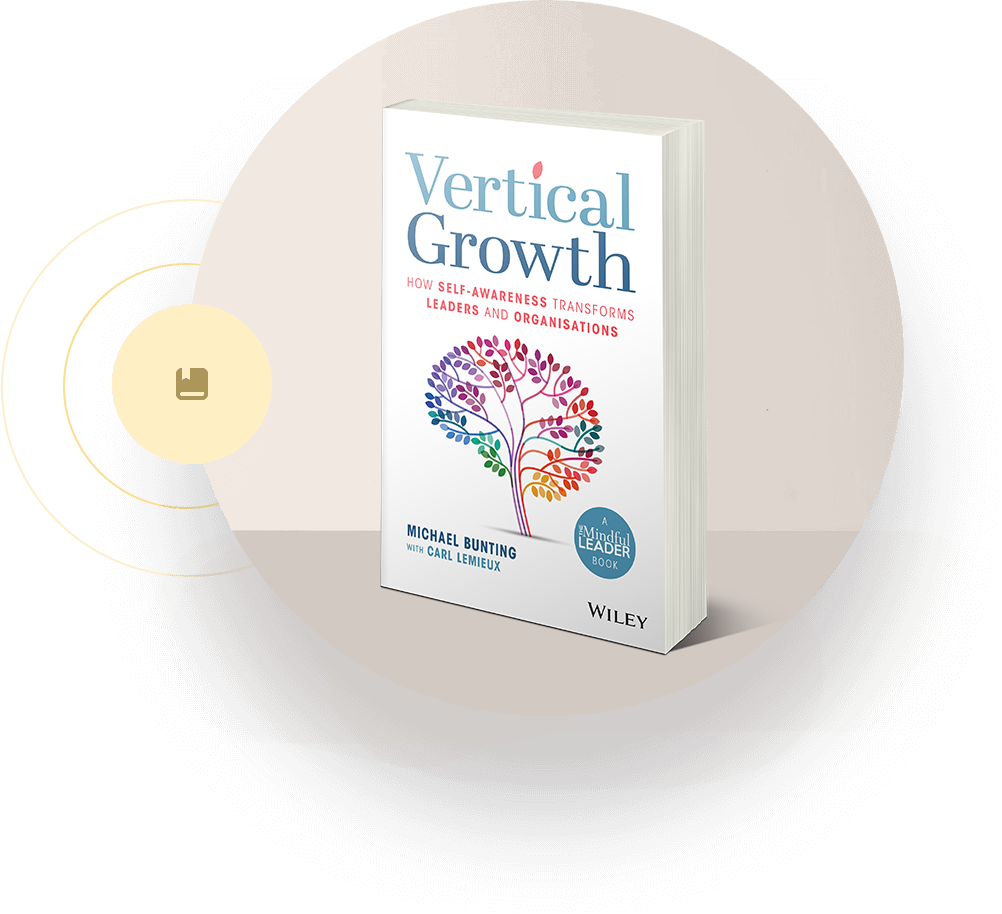Developing as a leader is about cultivating our inner strength to stay true under fire, to ask questions we don’t know the answer to, to stay balanced when our world is turning upside down, to stay kind and respectful when the heat of anger and frustration are coursing through our veins, to courageously hold ourselves and others accountable when we want to slip into avoidance and self-justification.
Unfortunately, all too often, when working in challenging conditions, our reactive brain kicks in and our noble intentions can easily fly out the window in the service of protecting us from emotional discomfort. Training the mind to observe our mental and emotional patterns is therefore a great way to cultivate self-awareness and self-regulation, which are the cornerstone to transformational leadership.
Self-awareness training has been around for millennia and has been popularised in recent decades as a powerful way to train the mind and mitigate the undesirable reactions of our unconscious mind.
I define self-awareness as maintaining an open-hearted awareness of our thoughts, emotions, bodily sensations and environment, paying attention in the present moment purposefully, warmheartedly and non-judgementally. It is experiencing and accepting the present moment — not how we want it to be, think it should be or perceive it to be, but as it really is. We can be mindful in any life situation — from driving, swimming or walking to leading, eating or writing.
self-awareness is often confused with the practice of meditation alone. Meditation is simply the intensive practice of self-awareness for its own sake, just as a gym workout is intensive exercise for its own sake, though walking to the gym or work is also exercise. And just as if you go to the gym regularly, it becomes easier to walk up the hills to work, if you meditate regularly, it becomes easier to be mindful when it matters, such as when you are receiving tough feedback or someone is irritating you.
Through meditation and other self-awareness practices we become more aware of our habitual reactions, expand the gap between stimulus and response, and make wiser choices. We learn to recognise the inner motivations for our actions and become more honest and compassionate with ourselves. We learn to observe our perceptions, thoughts and judgements, rather than identifying with them and getting caught up in the mental stories we create. In short, we become profoundly self-aware, which is the key that unlocks the door to personal growth.
The greater our self-awareness, the greater our ability to self-regulate in real time. As Urs Karkoschka, at Novartis, describes it, ‘For many years in the development of my self-awareness, the second element of self-regulation was missing. I thought that being self-aware was enough. I would be aware of my anger, for example, while still reacting to it. So my awareness was not complete, because I was not using it to mindfully manage my behaviour. Self-awareness is great, but if you can’t mindfully self-regulate in the moment, it’s not much use to you.’
Self-awareness training helps us develop:
a mind that is not constantly reactive and is more interested in reality than the fantasy world the unmindful mind is constantly lost in. This leads to more slow-brain, wise choices and actions.
the inner strength to feel and embrace uncomfortable feelings, instead of resisting, reacting and numbing. This develops a profoundly strong, peaceful mind and deep self-understanding and wisdom.
the ability to see through false assumptions, beliefs and judgements. It can literally take you all the way to the highest level of adult growth and make your entire ego structure ‘object’.
Without the self-awareness that self-awareness can give us, all efforts to change our behaviour are much more challenging. Through self-awareness we can better observe our underlying conditioning and the emotional avoidance creating poor behaviour, then self-regulate in real time to consciously choose values-aligned behaviours. This is the heart of transformational leadership.








